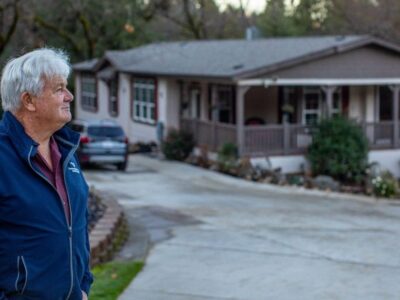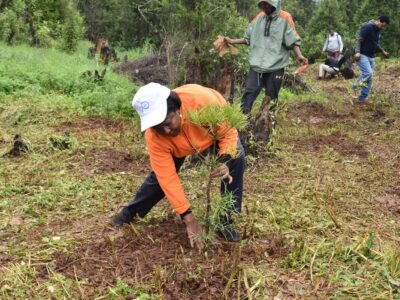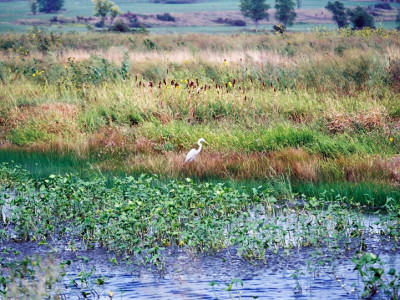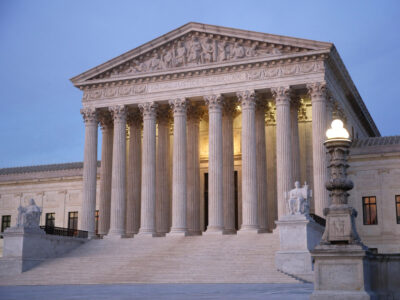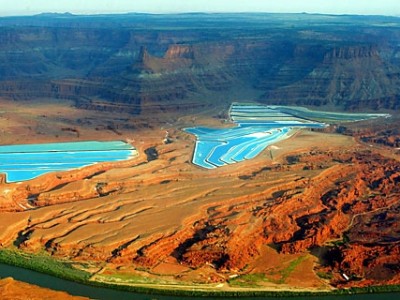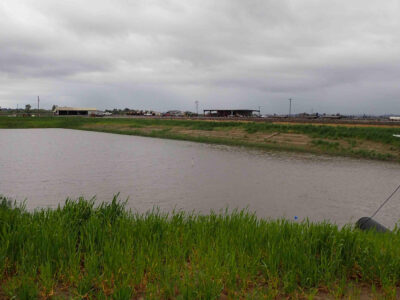Land Use
U.S. Supreme Court Revisits, Tightens Regulatory Takings Limits on Land Use Regulation
California Homeowner’s Takings Challenge to County’s Traffic Impact Fee Heads Back to State Court
On April 12th, the U.S. Supreme Court revisited a constitutional doctrine near and dear to its institutional heart: when and under what circumstances does a land use permit condition violate the Fifth Amendment’s Takings Clause? In yet another “regulatory takings” case from California, the Supreme Court wound up not answering that precise question. Instead, the …
CONTINUE READINGNew Bill Takes Up Local Oil Drilling Phase-Outs
Oil and gas interests want to weaponize new case law from the California Supreme Court. AB 3233 would clarify the scope of local authority over drilling operations.
When the California Supreme Court ruled last August that Monterey County could not enforce its voter-approved ban on new oil and gas wells, lawyers for Chevron said the company was “pleased” to end the 7 years of litigation. Monterey County is home to the eighth-largest oil field in California, so there was plenty at stake …
Continue reading “New Bill Takes Up Local Oil Drilling Phase-Outs”
CONTINUE READINGMisusing Carbon Removal as a Climate Response
Carbon removal is an alluring idea. That also makes it a tempting façade for bad policies.
It seems clear that in some form, carbon removal is going to be an important component of climate policy, especially later in the century to deal with carbon levels that overshoot the targets in the Paris Climate Agreement. The problem is not with the concept but with its misuse. One of the risks that …
Continue reading “Misusing Carbon Removal as a Climate Response”
CONTINUE READINGRecentering Environmental Law: A Thought Experiment
If we had understood then what we know now. . . .
In 1965, scientists sent LBJ a memo mentioning the risks of climate change. Imagine if history had been a little different. Suppose it had been this memo and a follow-up report, rather than Rachel Carson’s attack on pesticides, that sparked the environmental movement. How would environmental law look different and how might we be thinking about …
Continue reading “Recentering Environmental Law: A Thought Experiment”
CONTINUE READINGThe Long Life and Sudden Demise of Federal Wetlands Protection
Here’s a timeline of events.
It’s no wonder that one EPA staffer’s reaction to the Supreme Court ruling was a single word: “Heartbroken.” In 2023, the Supreme Court ended fifty years of broad federal protection to wetlands in Sackett v. United States. It is only when you look back at the history of federal wetland regulation that you realize just …
Continue reading “The Long Life and Sudden Demise of Federal Wetlands Protection”
CONTINUE READINGClimate Justice, Climate Finance and Pragmatism for Tropical Jurisdictions at COP28
Exploring the urgency of subnational climate action: insights from COP28 on financing tropical forest conservation, indigenous empowerment, and sustainable livelihoods by the Governors’ Climate and Forests Task Force network.
The Governors’ Climate and Forests Task Force (GCF Task Force) engaged in the 28th Conference of the Parties (COP28) to the United Nations Framework Convention on Climate Change (UNFCCC) held in Dubai, marking a pivotal moment in the global climate dialogue. This significant international forum serves as a crucial platform where nations, subnational entities, and …
CONTINUE READINGThe U.S. Supreme Court & Environmental Law in 2024
Numerous Key Environmental Issues and Doctrines Will Confront the Justices This Year
As we begin 2024, it’s useful to identify and assess the many environmental issues that the U.S. Supreme Court has agreed to decide this year. It seems likely that the conservative majority of the justices will erode or, perhaps, dramatically jettison longstanding principles of environmental law and policy in the coming months. Summarized below are …
Continue reading “The U.S. Supreme Court & Environmental Law in 2024”
CONTINUE READINGFood and Farming Makes the Menu at UN Climate Talks
Guest contributor Antonia Moure Richard of UCLA Law reports that regenerative agriculture was a big focus of COP28, but industrial farming was largely ignored.
At the United Nations climate conference known as COP28, it was easy to come to the realization that we must confront every aspect of the climate crisis, and we must do it right now. That includes transforming our food systems. Agriculture has historically been left out of the conversation at COP. That changed this year …
Continue reading “Food and Farming Makes the Menu at UN Climate Talks”
CONTINUE READINGAddressing Corruption In Electric Vehicle Battery Supply Chains
New CLEE/NRGI issue brief offers solutions
In the race to scale up a global supply chain for electric vehicle batteries, mining justice advocates have sought to ensure that the ongoing clean technology minerals boom does not exacerbate longstanding negative impacts from the global mining industry. Chief among these are corruption risks. To provide guidance to electric vehicle purchasers (particularly fleets), advocates, …
Continue reading “Addressing Corruption In Electric Vehicle Battery Supply Chains”
CONTINUE READINGRecharge net metering (ReNeM) provides win-win-win for groundwater agency, landowners, & sustainable groundwater management
Nature Water publication showcases the economics of a novel groundwater recharge incentive structure
By Molly Bruce, Luke Sherman, Ellen Bruno, Andrew T. Fisher, & Michael Kiparsky An insidious issue has been growing along the Central Coast and throughout the state of California for decades: groundwater overdraft. In response to this growing threat and 2014 legislation designed to put an end to chronic overdraft, many basins have identified managed …
CONTINUE READING



